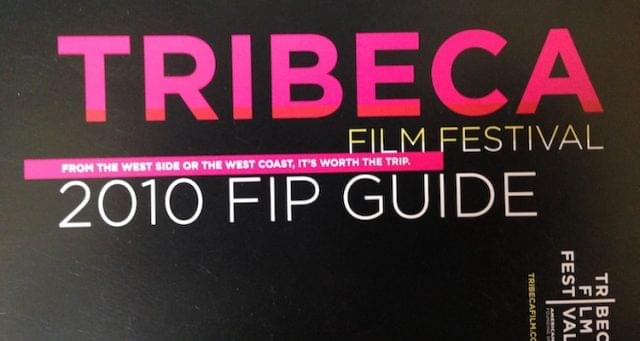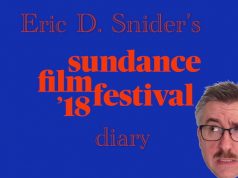
Some film festivals seek to champion low-budget independent films. Then there’s Tribeca, where this year’s opening-night feature was “Shrek Forever After.”
In its 9th edition, Tribeca is still finding its identity, trying to strike a balance between commercially appealing titles like “Shrek” and under-the-radar indie gems. One type of movie brings money; the other type brings credibility. To be successful, a film festival needs both.
Of course, some movies are commercially viable and artistically worthwhile. That describes “Monogamy,” a relationship drama directed and co-written by Dana Adam Shapiro, who co-directed the Oscar-nominated documentary “Murderball.” “Monogamy” stars Chris Messina and Rashida Jones — both recognizable, likable actors — as an engaged couple whose relationship is threatened by Messina’s work as a surveillance photographer. The film is intelligent yet accessible, the kind of smart movie that audiences enjoy because it feels like an art-house movie without being, you know, an art-house movie.
Along those same lines is “Beware the Gonzo,” a comedy that’s set in a high school but has more in common with “Charlie Bartlett” and “Heathers” than, say, “Superbad.” Next-big-thing Ezra Miller plays an intense journalism student who starts an underground newspaper — remember those, Gen X-ers? — in order to combat injustice and speak up for the little guy. Hilarity ensues, accompanied in the end by a little too much seriousness. The writing and direction, by Bryan Goluboff (“The Basketball Diaries”), is sharp, and 17-year-old Miller carries the film impressively.
Then you get something like “Sex & Drugs & Rock & Roll,” a biopic about Ian Dury, one of the big names in the British New Wave punk scene of the late 1970s and early ’80s. You’d expect a film about an underground rock figure to have an independent feel to it, and this one does, thanks mostly to the stylish direction by Mat Whitecross (who, like the “Monogamy” guy, is a documentarian making his narrative feature debut). But it also follows the same template as all the other music biopics of the last several years: substance abuse, flashbacks to troubled childhood, rock ‘n’ roll excesses, temper tantrums, etc. As someone with little to no pre-existing interest in Dury, I can’t say the film did anything to change that. Andy Serkis’ performance in the lead role is pretty memorable, though. Did the real Ian Dury look like Mr. Bean and act like the emcee in “Cabaret”? Now I’m curious.
It wouldn’t be a film festival if Patricia Clarkson didn’t have a movie in it, so thank goodness the Tribeca programmers found “Cairo Time.” Like “Monogamy,” it’s about adult relationships. Unlike “Monogamy,” there is no chance this will ever be a box-office success, even by art-house standards — not because it isn’t good (it is), but because it’s a quiet, introspective film whose primary asset is Clarkson’s subtle performance. She plays a diplomat’s wife who has to spend a few days in Cairo while her husband tends to business elsewhere. She’s accompanied by her husband’s associate, Tareq (Alexander Siddig), and a somewhat complex friendship develops between them. The scenery is beautiful, the musical score is lovely, Clarkson and Siddig are good. But in terms of popular appeal, well, let’s just say it’s no “Shrek Forever After.”




